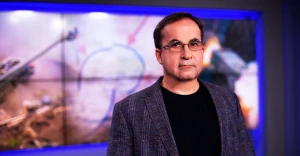
Telethon is form of censorship
Freedom of speech in Ukraine remains intact during the war, but the single marathon should be stopped - survey of journalists
On May 3, World Press Freedom Day, we released our new research on the challenges to freedom of speech and journalists in times of war. It covered 165 journalists.
Key findings:
-
Most Ukrainian journalists believe that freedom of speech is preserved in Ukraine even under martial law. At the same time, they are also convinced that the only telethon should be stopped, as it is a form of censorship.
-
Thus, journalists rate the state of freedom of speech in Ukraine in 2023 at 6.4 points on a 10-point scale, where "1" is very bad and "10" is very good.
-
At the same time, a significant number of the surveyed media professionals have faced violations of the right to freedom of speech and information in their activities since February 24, 2022. Most often, journalists reported officials' refusal to provide socially important information (51% of respondents), censorship of finished materials or a ban on the publication of certain information (22%), and denial of accreditation (17%).
-
Journalists who acknowledged the existence of censorship most often stated that it was carried out by various state or local authorities, as well as media owners. Self-censorship by journalists came in third place.
-
In addition, 62% of the surveyed journalists believe that a single telethon, created at the beginning of the full-scale invasion, is a form of censorship. 2/3 are also convinced that the single marathon should be terminated and all broadcasters can start broadcasting independently. Some respondents say that the single telethon should be preserved at least until the end of the active phase of the war. At the same time, almost all of them are convinced that it needs to be modified and the quality of the content improved.
-
The majority of media professionals (78%) say that the Russian invasion has increased the number of cases of self-censorship. Among the reasons that force journalists to self-censor, three are key: fear of making mistakes or difficulties in verifying information and their own beliefs (45% each) and fear of losing their jobs (44%).
-
The biggest threats to freedom of speech and the work of journalists are physical threats or threats to life related to working in the war zone (67%), reduced funding for the media (55%), censorship by the authorities (47%) and low level of journalists' qualifications (45%).
“62% of the surveyed journalists believe that a single telethon, created at the beginning of the full-scale invasion, is a form of censorship. 2/3 are also convinced that the single marathon should be terminated and all broadcasters can start broadcasting independently”
Our key conclusion is that journalists generally assess the state of freedom of speech well and do not perceive various forms of censorship. However, there is a negative trend: self-censorship and government censorship are replacing media owner censorship, which was dominant before the great war.
More interesting figures, opinions and assessments of journalists can be found in the full version of the survey here.
The poll was held by the Democratic Initiatives Foundation in cooperation with ZMINA. Center for Human Rights with the support of Freedom House Ukraine.
Source.
About the author. Tetiana Pechonchyk, Head of the Board of the Zmina Human Rights Center
The editors do not always share the opinions expressed by the authors of the blogs.
- News











































